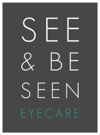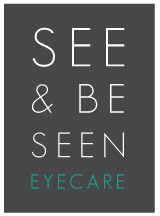The Canadian National Institute for Blindness says that an estimated 30% of Canadians suffer from chronic dry eye. That means nearly one-third of us live with the frustration and discomfort every day.
Despite this very high prevalence, I have found that many patients believe their dry eye disease is an inconvenience rather than an actual threat. This belief, unfortunately, may be traced back to medical professionals. Until recently, many general practitioners and even some optometrists dismissed dry eye as an irritating but generally harmless condition.
I have spent a large portion of my career studying and treating dry eye disease. I have found that dry eye, even in mild cases, should be treated to avoid potential injury and long-term damage to the eye.
What is Dry Eye?
Your eyes rely on tears for protection, lubrication, and cleanliness. Without the appropriate volume of tears, or without tears of sufficient quality, your eyes can become vulnerable to damage.

This lack of quality tears is a condition known as dry eye, or in some more recent cases, DEBS (dry eye blepharitis syndrome).
Stages of Dry Eye Disease
Generally speaking, there are three stages of dry eye disease. The condition is typically progressive; if you do not treat dry eye at one stage, it will absolutely progress.
Symptoms of Mild Dry Eye
If you have mild dry eye, you might experience:
- Red eyes
- Excessive watering from one or both eyes
- Itchy, red eyelids
- Burning sensation
- Frequent blinking
Symptoms of Moderate Dry Eye
If you have moderate dry eye, you might experience:
- Redness
- Inflamed eyes
- Blurry vision
- Itchy eyes
- Burning sensation
- Frequent blinking
- Desire to rub your eyes
Symptoms of Severe Dry Eye
If you have severe dry eye, you may experience:
- A gritty sensation
- Stringy discharge
- Sensitivity to light
- Feeling that something is stuck in your eye (foreign body sensation)
- Periods of excessive tears
- Redness
- Inflamed eyes
- Blurry vision
- Itchy eyes
- Burning sensation
- Frequent blinking
- Desire to rub your eyes
What Could Happen If Dry Eye Goes Untreated?
Corneal Abrasions
Your cornea is the clear surface of the eye over your pupil and iris. The tissue is very sensitive and must be maintained to preserve your vision.
Without adequate tears to wash them away, granules of dust, dirt, or other substances can stick to your eyes, causing corneal abrasions or scratches.
Infections
Much like a cut anywhere else on your body, a cut or abrasion on your cornea leaves the tissue beneath the surface vulnerable to infection.
Healthy tears contain natural anti-microbial compounds, which can help prevent infections and allow corneal abrasions to heal. Without sufficient tears, your eyes are far less protected from infection-causing bacteria.

Corneal Ulcers
An ulcer is an open sore that either takes a long time to heal or returns on a regular basis.
When a corneal abrasion develops an infection, it often becomes a corneal ulcer. These ulcers can also develop just due to dryness without any infection at all. In most cases, corneal ulcers are preventable with appropriate medical care. However, issues like ulcers can have serious consequences.
Vision Loss
While dry eye itself may not necessarily cause vision loss, it may trigger other eye health issues, which can ultimately result in vision loss.
Without treatment, deep corneal ulcers can create scar tissue, which impacts your ability to see. And in rare cases, some infected ulcers can eventually lead to blindness.
Always Take Dry Eye Symptoms Seriously
If you have symptoms of dry eye, do not panic. There are several types of treatment available to you. Your optometrist will work with you to find a solution and mitigate your condition before your case becomes severe.
The most important thing to remember is that dry eye can progress. While it may feel like a minor annoyance today, it could become a major hindrance in a year. Tell your optometrist about your dry eye symptoms. We can help you find relief, and in the process, safeguard your eyes.





